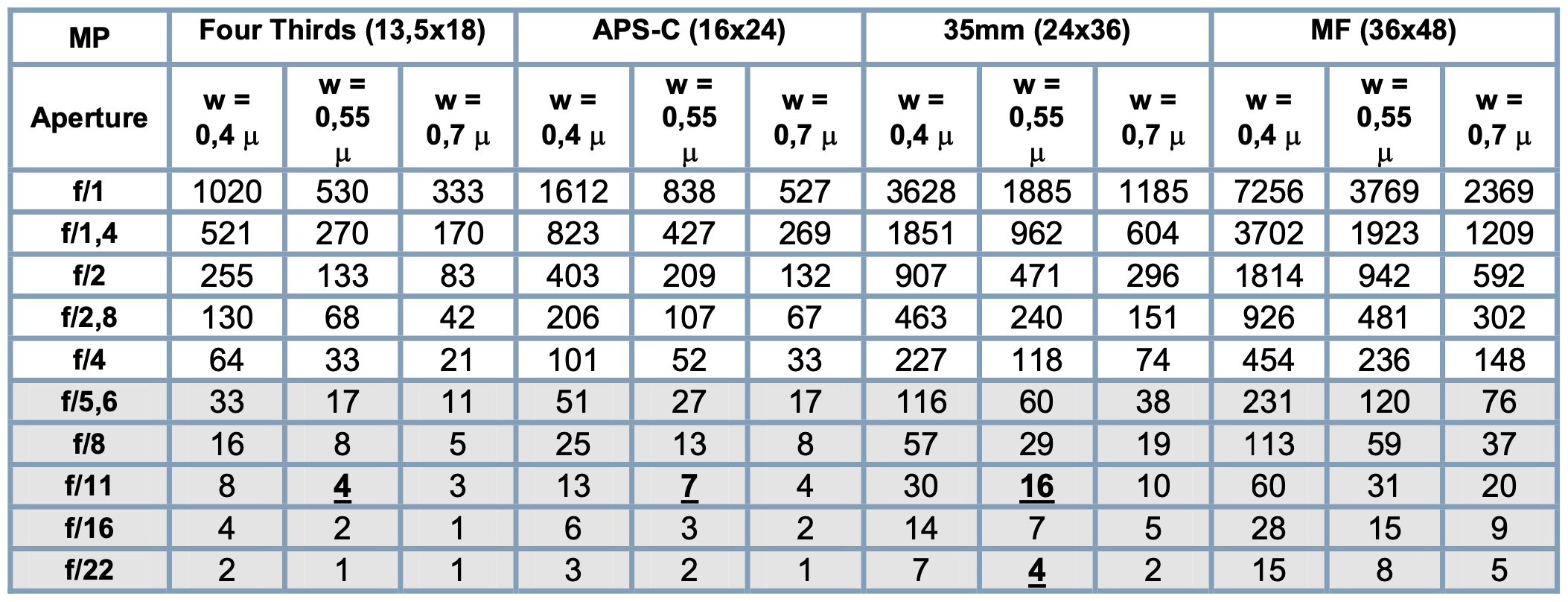How can we calculate an image's effective megapixel count at each aperture setting, specifically as loss relates to diffraction?
Assume that we already know the sensor size, its true megapixel count, and assume that the camera is paired with a perfect lens.


